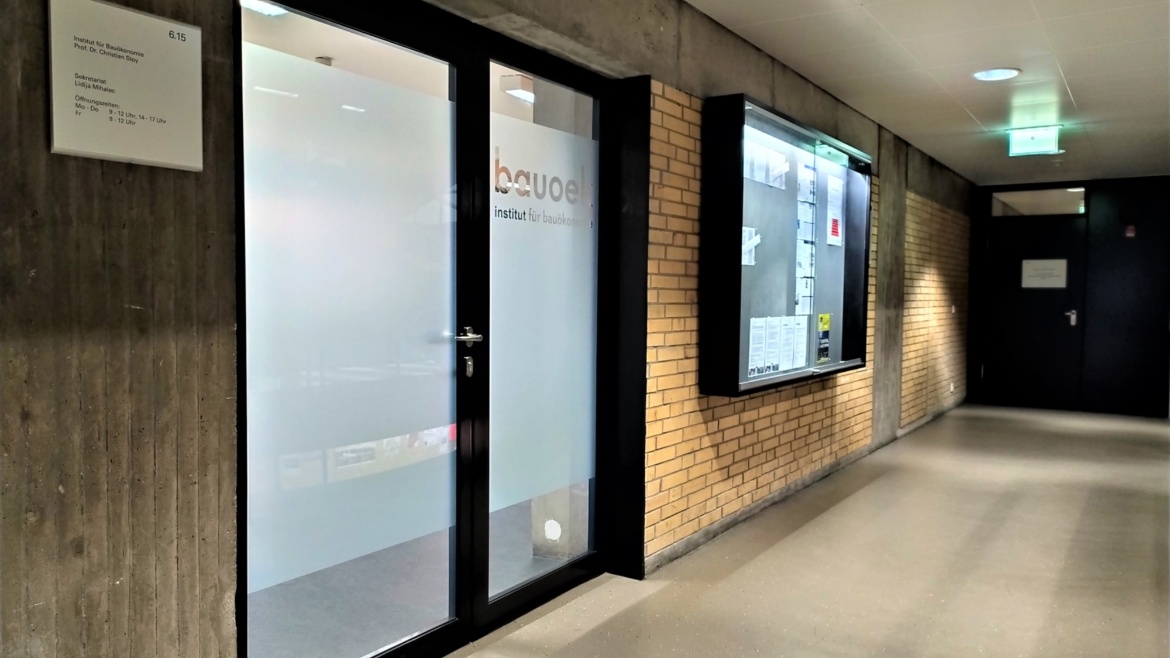
The Institute for Building Economics is dedicated to the teaching of the systematic communication of scientifically based expertise and the development of skills in the field of "Bauökonomie". It teaches the methods and instruments of holistic planning, execution and use of buildings, i.a. as project-related lectures and seminars based on the modern case-study concept. In addition, project, bachelor and master theses on construction economics topics are offered, such as cost planning, tendering, private construction law, fee determination, project development, project management, real estate management and industrial real estate management.
Within the faculty, the Institute for Building Economics is anchored in the study course "Architecture and Urban Planning" (Bachelor, Master) and also heads the extra-occupational master programs Industrial Real Estate Management (IREM) and Healthcare Real Estate Management (HREM). In addition, it is engaged at the university level in the Master's degree program "Building Physics".
In research, the institute devotes itself to systematic action in connection with the planning, execution and use of structures. The focus is on the methods and instruments of holistic management of construction projects and real estate for owners, users, operators and the construction industry. Currently, this focuses on the following topics:
- Model-based planning of investment costs, construction time and cash outflow
- early planning of usage and life cycle costs
- Value-based planning of the technical and social infrastructure
- Property valuation and sustainability in architecture
- Value-based calculation of planning expenses
In addition to economic aspects, the research portfolio also covers ecological as well as socio-cultural issues. The overarching aspect of all considerations is the holistic approach of planning, execution and utility, which extends from the first project idea to dismantling. The institute maintains national and international teaching and research collaborations, such as the Graduate School of Design, Harvard University and the ETH Zürich. In addition, the research projects are carried out in collaboration or on behalf of business partners.





